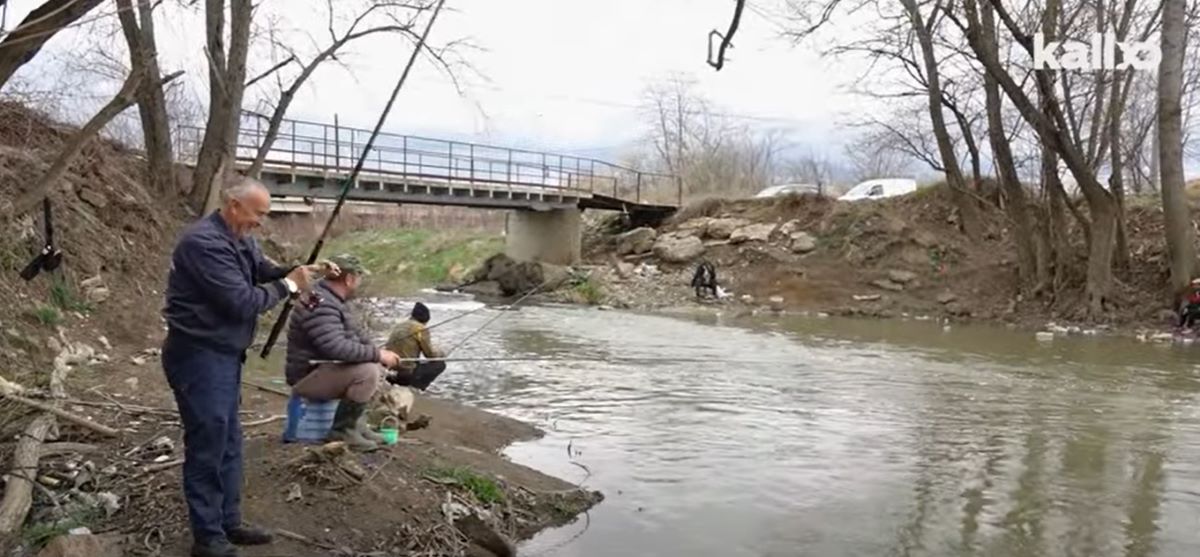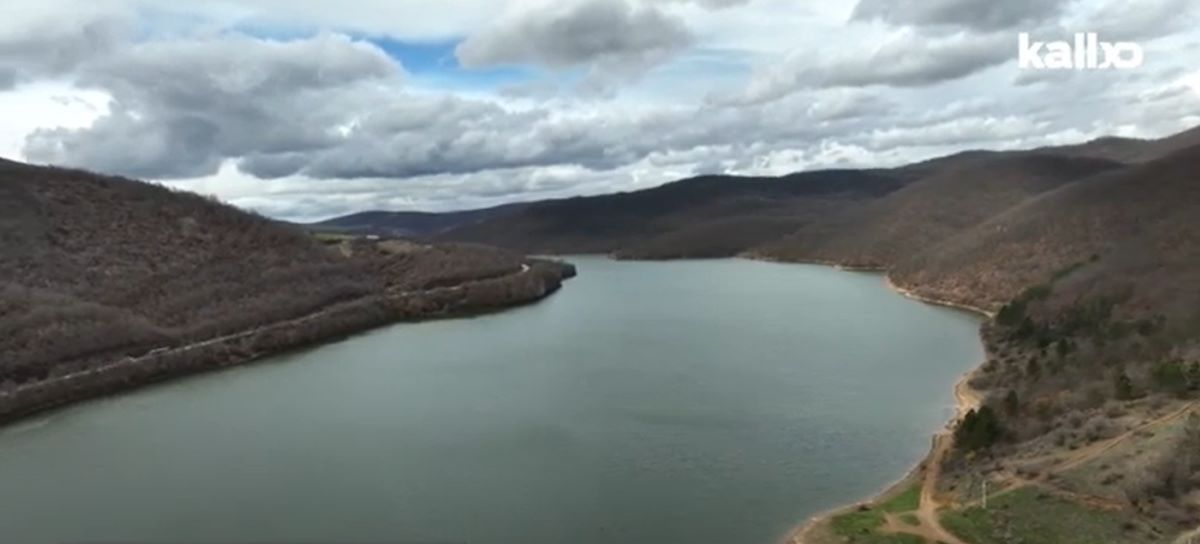Different Kosovo ethnic communities have joined forces in a united effort to safeguard Lake Badovc/Badovac against illegal fishing activities, aiming to preserve the artificial lake’s ecosystem and protect its fish population while fostering multi-ethnic cooperation.
“I live for fishing. Every day I spend in the water is an extra half hour of life for me, Zivorad Maksimovic, a Kosovo Serb former fisherman, told Kallxo Përnime show on March 17.
Borivoje Stojanovic, a Kosovo Serb, who like Maksimovic is a member of the Kosovo fishermen Association “Krapi” (Carp) explained that “fishing is actually a sport. It’s companionship.”
“Fishing is our hobby, and we love it,” Stojanovic said enthusiastically.
Maksimovic and Stojanovic, alongside their Kosovo Albanian, Turk, and Ashkali colleagues, “are united in every aspect” when it comes to combating illegal fishing in the Badovc/Badovac lake.
Members of the different ethnic communities of Kosovo have found common ground in protecting Lake Badovc/Badovac from illegal fishing activities. Their protection efforts include patrolling the lake, confiscating fishing equipment of fishermen that do not have permits and reporting the illegal activity.
“We are a multi-ethnic association,” Ali Vitia, the Kosovo Albanian president of the Krapi Association for the past 10 years, told the Kallxo Përnime show. Vitia explained that Krapi members patrol Badovc/Badovac Lake twenty four hours a day, seven days a week.

The Badovc/Badovac Lake. Photo: BIRN
“I am a former fisherman. With our involvement in the organisation, we can contribute to preventing illegal fishing,” Maksimovic proudly told Kallxo Përnime show.
“Let the youngsters be fishermen as they should be [legally]”, Maksimovic added.
The Badovc/Badovac lake is located approximately 18 kilometres from the centre of Kosovo’s capital Prishtina and around 7 kilometres from the predominantly Serb municipality of Gracanica.
An artificial lake that provides drinking water to the municipality of Gracanica and parts of the municipality of Prishtina, Badovc/Badovac is home to many species of fish. The fishermen complain that the number of fish has declined in recent years, requiring new fish to be added to the lake.
Krapi released over 6,000 carp fish into the lake in 2023.

Badovc/Badovac Lake, Photo: BIRN
Individuals in Kosovo must possess a permit in order to fish. During the breeding period for fish, which lasts from March until May, fishermen in Kosovo must catch and release all fish.
According to Vitia, “since 2000, we have faced various challenges, attacks, and threats, but in recent years, the situation has been normalising. We have the authority to confiscate illegal equipment even without the police, but when they resist, we call the police.”
Stojanovic, who patrols the lake as part of Krapi, explained that “we protect the fish from illegal fishermen who come from different places to catch fish unlawfully”. Stojanovic noted that Krapi also deals with the waste left by visitors and illegal fishermen.
The Badovc/Badovac lake is a popular destination for weekend visitors because it is near another tourist attraction, Prishtina Bear Sanctuary. According to Stojanovic, “damages are also caused as they (visitors and illegal fishermen) litter and pollute the environment often”.
During the fish breeding period, Krapi patrols also operate as night patrollers to stop illegal fishermen who set up nets which hurt the fish and hinder their ability to reproduce.
Maksimovic explained that “illegal fishermen throw dynamite in the water, then sail with a boat and collect the fish . With this method, all the fish are killed, both large and small, they collect the large fish, while the small ones suffer.”
The president of the Federation of Sport and Recreational Fishermen of Kosovo,
Kosovo Albanian Milaim Vitia, claimed that “our aim is to protect the fish and the waters”. He reported that the Federation has fifty guards of its own and works with ninety total guards through collaboration with 18 other associations across Kosovo.

Badovc/Badovac Lake, Photo: BIRN
“The guard is obliged to ask fishermen for their fishing permits. If there is no permit, the person must pay a daily permit fee of 10 euros,” Vitia continued, explaining that an annual fishing permit in Kosovo lakes costs 30 euros.
“When a generator or explosive device is seized, it’s a criminal offence,” Vitia emphasised.
Other activities, such as boating in the lake, are prohibited, with exceptions made for patrols by police and the NATO peacekeeping mission in Kosovo, KFOR. There have also been cases when KFOR helicopters have taken water from the lake in order to combat large fires.





